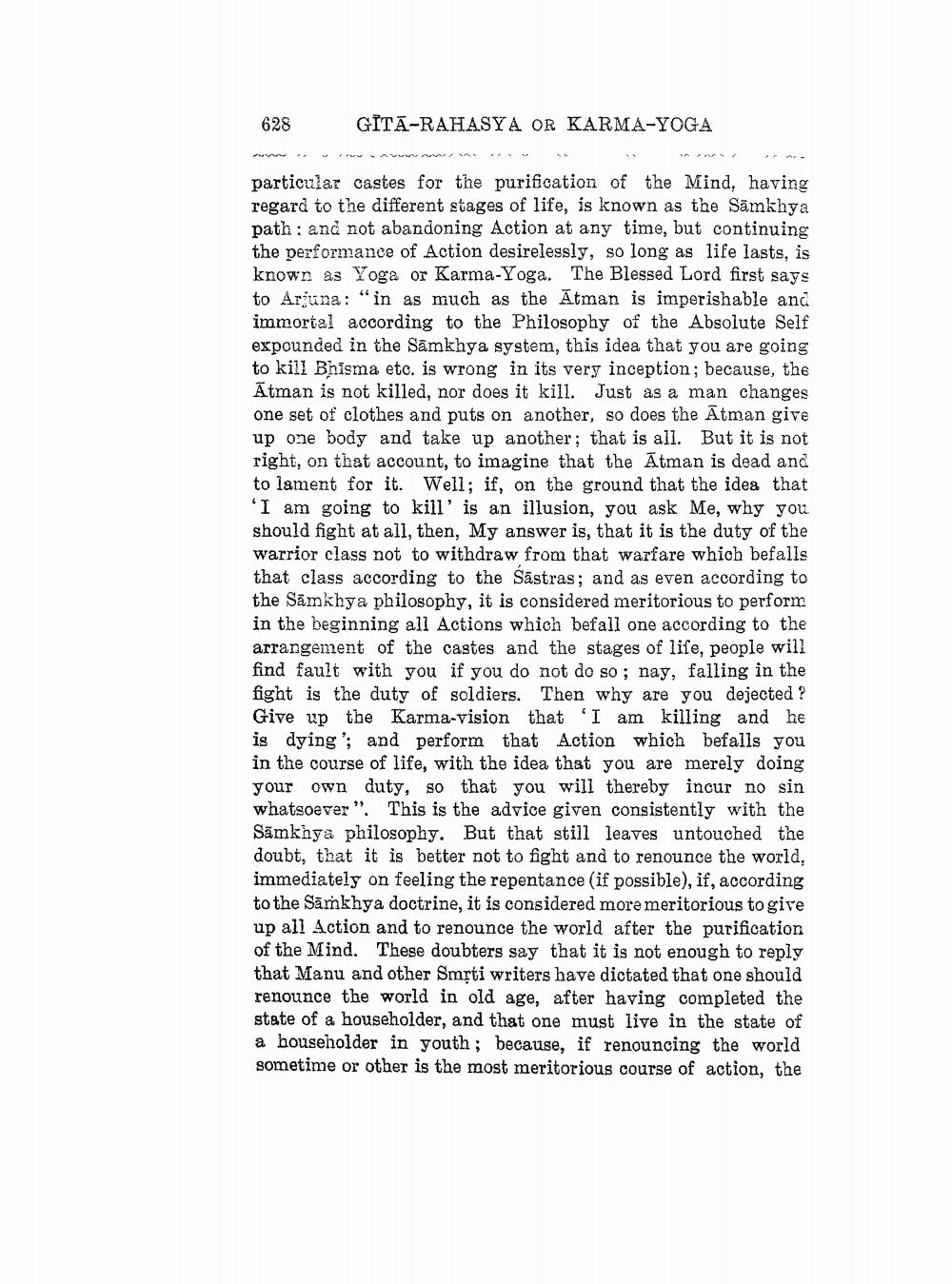________________
628
GITĀ-RAHASYA OR KARMA-YOGA
particular castes for the purification of the Mind, having regard to the different stages of life, is known as the Samkhya path: and not abandoning Action at any time, but continuing the performance of Action desirelessly, so long as life lasts, is known as Yoga or Karma-Yoga. The Blessed Lord first says to Arjuna: "in as much as the Atman is imperishable and immortal according to the Philosophy of the Absolute Self expounded in the Samkhya system, this idea that you are going to kill Bhisma etc. is wrong in its very inception; because, the Atman is not killed, nor does it kill. Just as a man changes one set of clothes and puts on another, so does the Atman give up one body and take up another; that is all. But it is not right, on that account, to imagine that the Ātman is dead and to lament for it. Well; if, on the ground that the idea that 'I am going to kill' is an illusion, you ask me, why you should fight at all, then, My answer is, that it is the duty of the warrior class not to withdraw from that warfare which befalls that class according to the Sāstras; and as even according to the Samkhya philosophy, it is considered meritorious to perform in the beginning all Actions which befall one according to the arrangement of the castes and the stages of life, people will find fault with you if you do not do so ; nay, falling in the fight is the duty of soldiers. Then why are you dejected? Give up the Karma-vision that 'I am killing and he is dying '; and perform that Action which befalls you in the course of life, with the idea that you are merely doing your own duty, so that you will thereby incur no sin whatsoever". This is the advice given consistently with the Sãmkhya philosophy. But that still leaves untouched the doubt, that it is better not to fight and to renounce the world, immediately on feeling the repentance (if possible), if, according to the Samkhya doctrine, it is considered more meritorious to give up all Action and to renounce the world after the purification of the Mind. These doubters say that it is not enough to reply that Manu and other Smrti writers have dictated that one should renounce the world in old age, after having completed the state of a householder, and that one must live in the state of a householder in youth; because, if renouncing the world sometime or other is the most meritorious course of action, the




